President Paudel receives Bijaya Dashami 'tika'
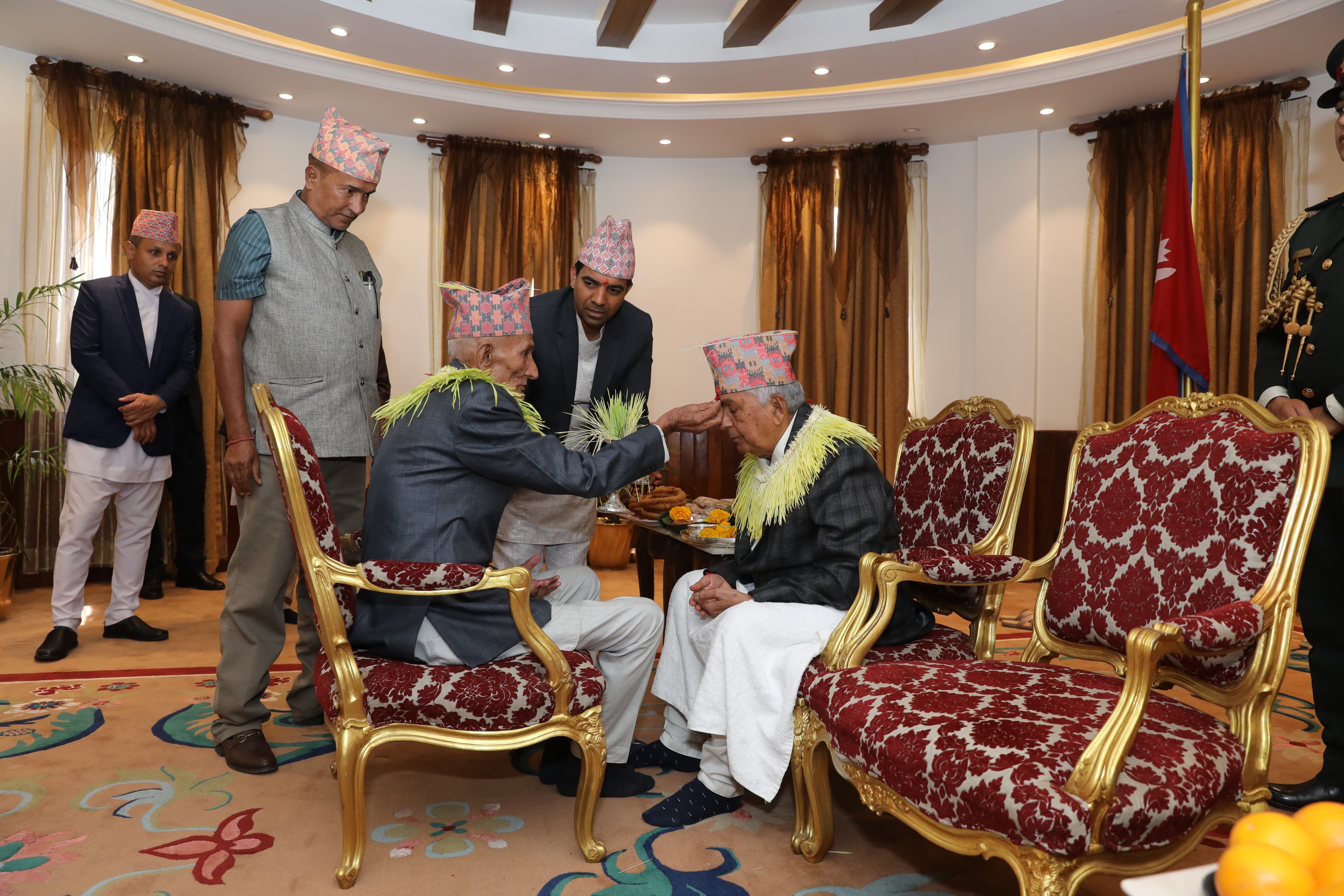
Kathmandu, October 12 — President Ramchandra Paudel received the Dashain tika, prasad, jamara and blessings from his elder brother 94-year-old Dundiraj Paudel today.
The Head of State received the tika and jamara at the President House, Shital Niwas at the auspicious time of 11.36 am today on the occasion of the Bijaya Dashami.
On the same occasion, President Paudel also received the Dashain tika, jamara and prasad from the priests.
After receiving tika, the President offered tika and jamara to First Lady Sabita Paudel and other members of his family at the auspicious time, the President's Private Secretariat stated.
The President is also scheduled to give tika and jamara to the distinguished persons from 3.00pm to 3.30 pm and to the members of the public from 3.30pm to 5.00pm on the occasion of Bijaya Dashami today.
The President will give tika and jamara to the VVIPs, the Deputy Prime Ministers, the Province Chiefs, Ministers, justices, lawmakers and office-bearers of the constitutional bodies as well as to the officers of civil service, Army and Police from 3.00pm to 3.30 pm at his residence at the President House, Shital Niwas.
Thereafter, the Head of State will give tika and jamara to the interested members of the general public from 3.30pm to 5.00pm, according to the President's Secretariat.
Dashain symbolizes the victory of truth over falsehood and it is linked to the legend of the goddess Durga's slaying Mahishasur, the demon. It is believed that putting on the 'tika' epitomizes the goddess bestowing the power of victory as a blessing. Putting on the tika on one's forehead also symbolizes purity and holiness.
This tradition of putting on tika and jamara on the occasion of Bijaya Dashami contributes to the preservation of Nepali culture and tradition and it has significance, as it is also an occasion when all members of the family gather and receive blessings from their elders and seniors.
In this way, the Dashain tika carries religious, cultural and familial significance and it is believed to foster a sense of unity, love and peace in Nepali society.


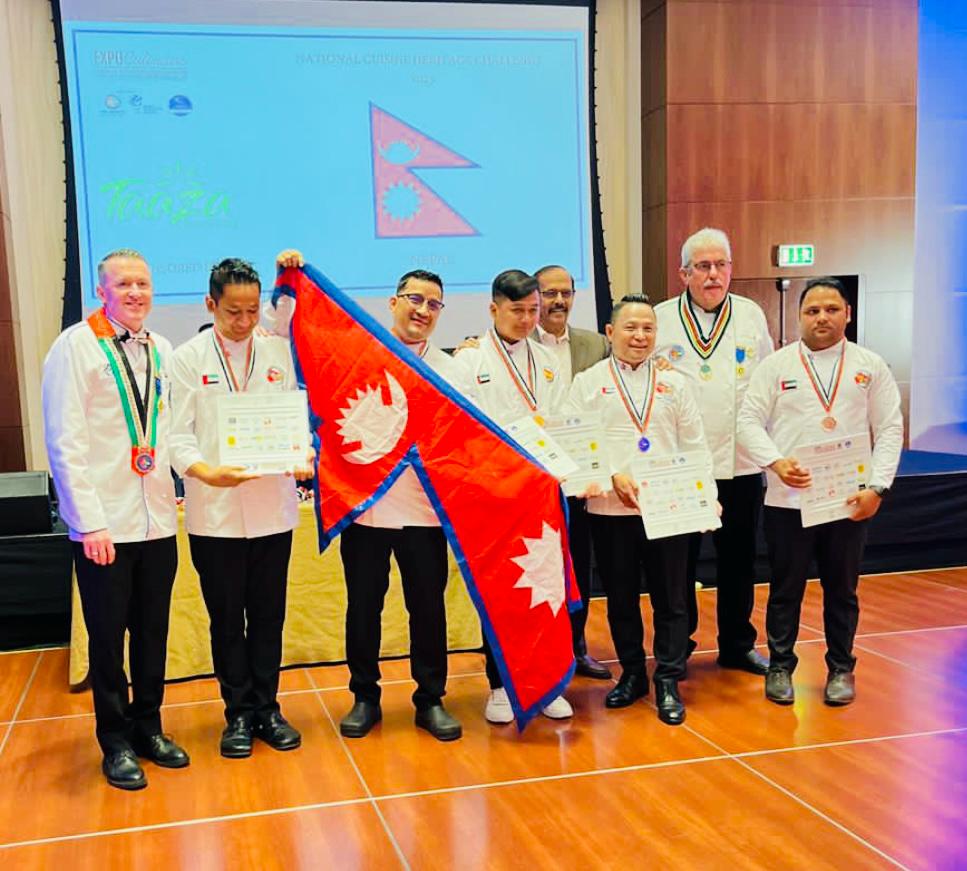
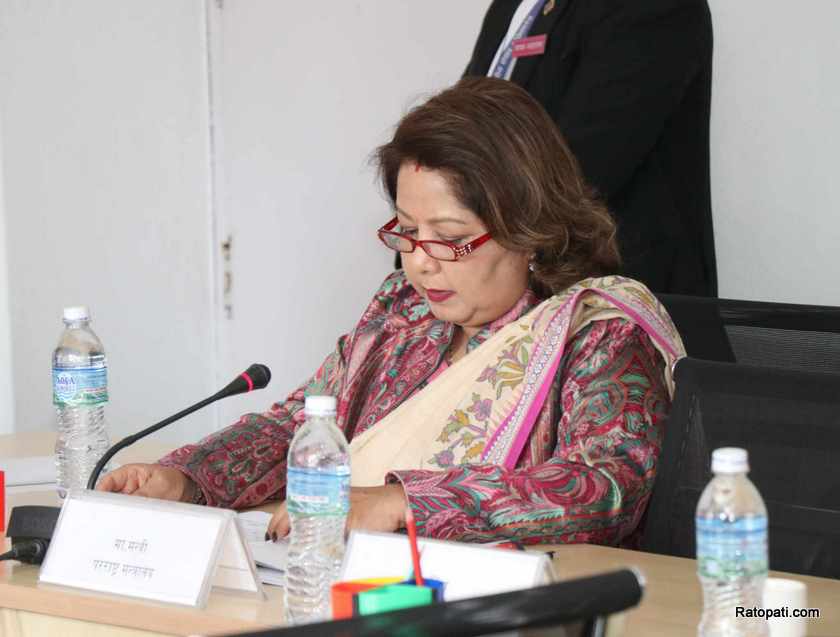
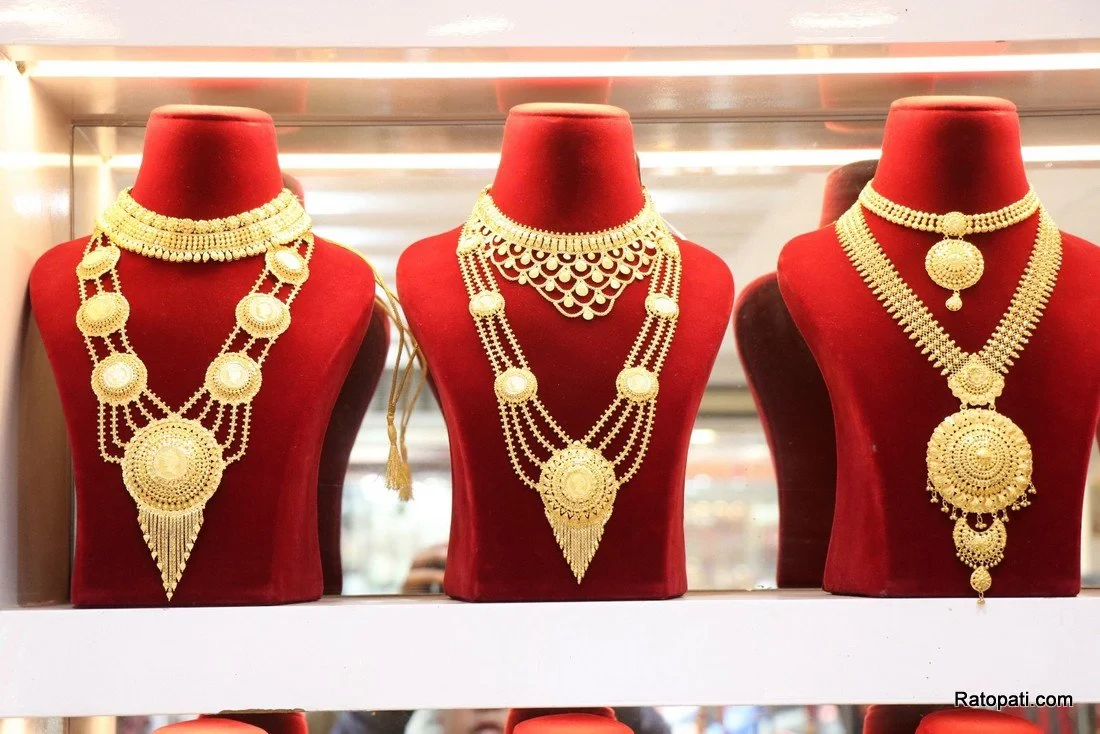


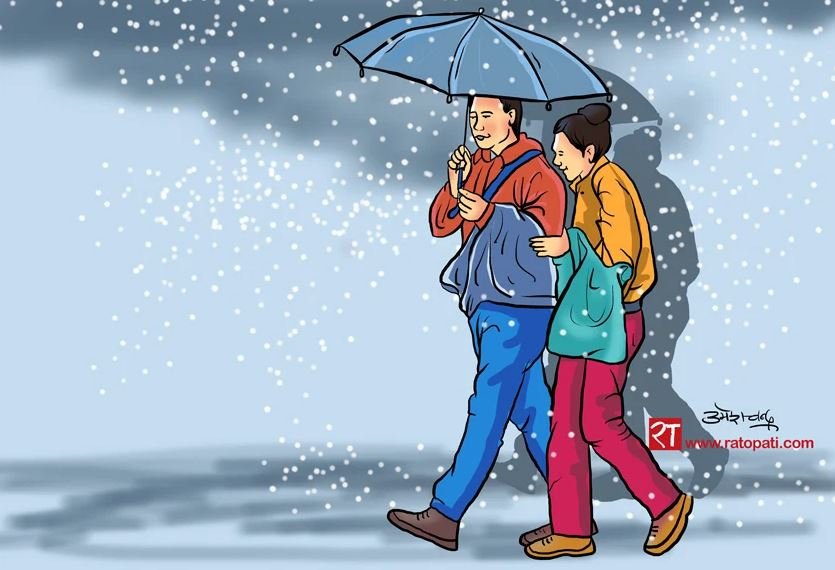

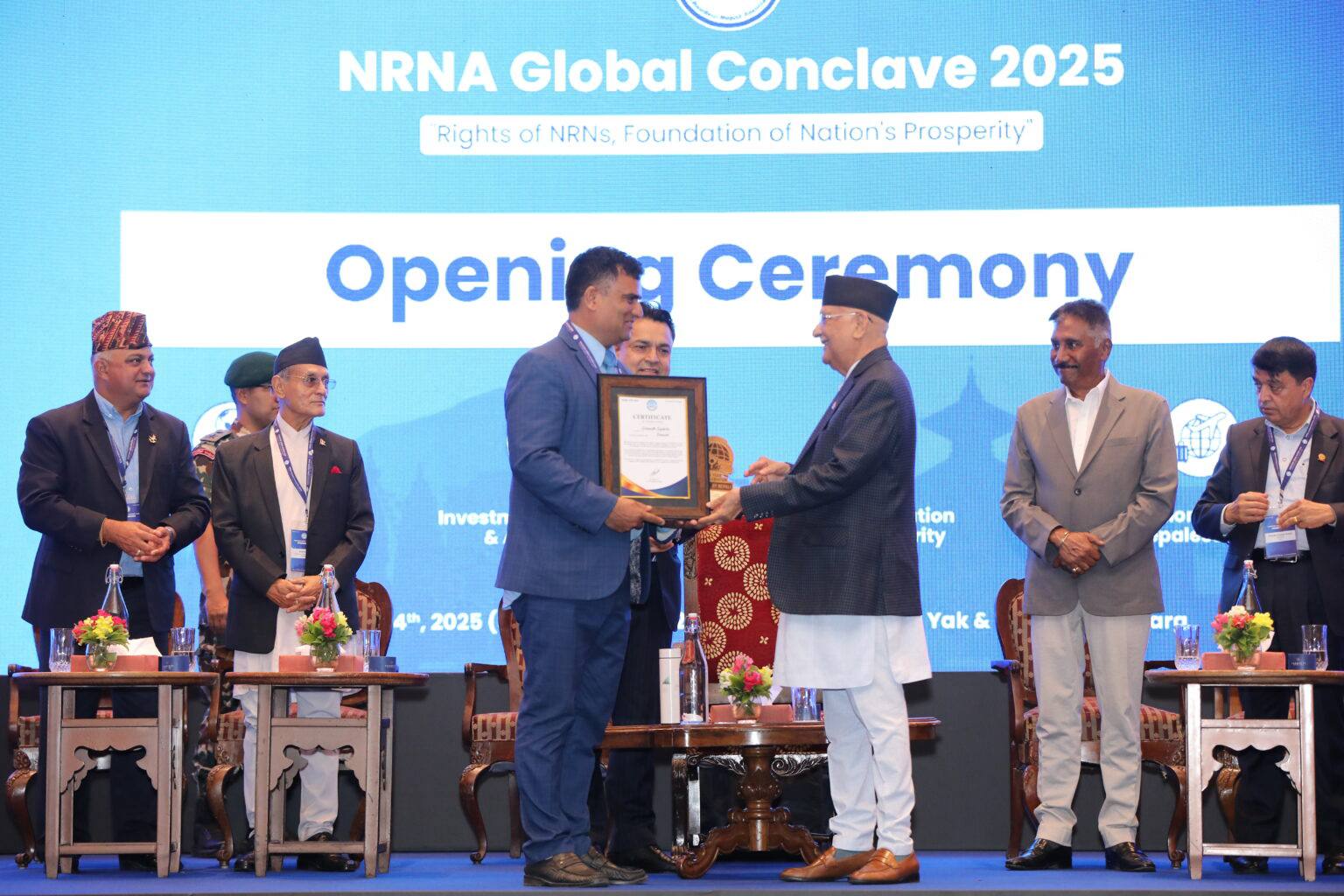
Leave Comment